The Cult of Donald J. Trump
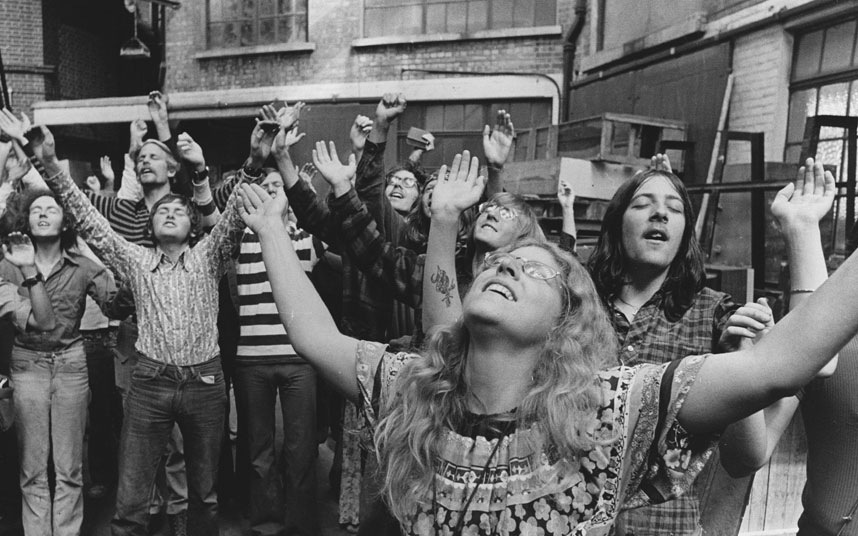
Of interest is the occurrence of professionals in the psychology field speaking out about Donald Trump’s mental state, despite ethical rules laid out by the American Psychiatric Association (APA), which clearly state that they’re banned from expressing their professional diagnostic opinions. The origin of this rule traces back to the days of Barry Goldwater, when a newspaper headline boldly stated: “1,189 Psychiatrists say Goldwater is Psychologically Unfit to be President!”
The result was the APA issuing the so-called “Goldwater Rule”: “It is unethical for a psychiatrist to offer a professional opinion unless he or she has conducted an examination of the patient in question.”
Though not a psychiatrist, John D. Garner, a psychotherapist at Johns Hopkins University, recently ventured into this forbidden area when he publicly stated that Donald Trump was “…dangerously mentally ill and temperamentally incapable of being president.” And in 2016, Dr. Drew Pinsky, a medical doctor and celebrity physician in California, didn’t just question Trump’s mental state but also that of his supporters. While he said that Trump isn’t “insane” (which is not a formal medical term), he does show signs of mental instability.
As Pinsky put it: “There’s two definitions of sanity: one is legal definition, and that is somebody who is so out of it they don’t know the difference between right and wrong.” (Interview with CNN’s Don Lemon). Others in psychology and medical fields have more recently stuck a toe in the water by offering up some cautiously worded comments about Donald Trump.

As human beings we like—love—labels. One word that has been used to describe Donald Trump is “megalomaniac.” It’s a great sounding word, fitting for a larger-than-life reality show host who now commands the most powerful military in the world. Megalomania is defined as:
a) a mania for great or grandiose performance,
b) a delusional mental illness that is marked by feelings of personal omnipotence and grandeur.
However, some caution needs to be provided on the use of this word. It’s now more properly described as Narcissistic Personality Disorder, which raises more complex issues and left to medical professionals in the field of psychiatry and psychology. The Mayo Clinic, for example, explains NPD as:
Narcissistic personality disorder is a mental disorder in which people have an inflated sense of their own importance, a deep need for admiration and a lack of empathy for others. But behind this mask of ultraconfidence lies a fragile self-esteem that’s vulnerable to the slightest criticism.
It’s tempting for lay people, the media, and even those in fields linked to psychology to suggest that Donald Trump may suffer from NPD. But one treads into that mine-field.

Older Americans, for example, who have never voted in their lives cast a ballot for Trump last November. One can argue that the disgust many Americans hold towards Congress and the country’s political system in general underlies much of the reason why Trump won the election. But it also raises the question of WHY do so many Americans love the man and become so emotional when interviewed about their support for him?
It brings to the mind the subject of cults, which may be comprehensively defined as:
1. a particular system of religious worship, especially with reference to its rites and ceremonies.
2. an instance of great veneration of a person, ideal, or thing, especially as manifested by a body of admirers.
3. a group or sect bound together by veneration of the same thing, person or ideal.
4. a group having a sacred ideology and a set of rites centering around their sacred symbols.
5. a religion or sect considered to be false, unorthodox, or extremist, with members often living outside of conventional society under the direction of a charismatic leader.
It’s clear that the word “cult” is expansive is definition, and as a consequence is tempting to apply to a variety of situations and individuals.
The intersection of megalomania/NPD and cults presents an interesting study. For example, Bernie Madoff, the stockbroker and investor who ripped off his clients for $65 billion through an elaborate Ponzi scheme and who was sentenced to 150 years in prison, created a cult-like following through behaviours reflecting aspects of NPD. He died in prison in 2014.
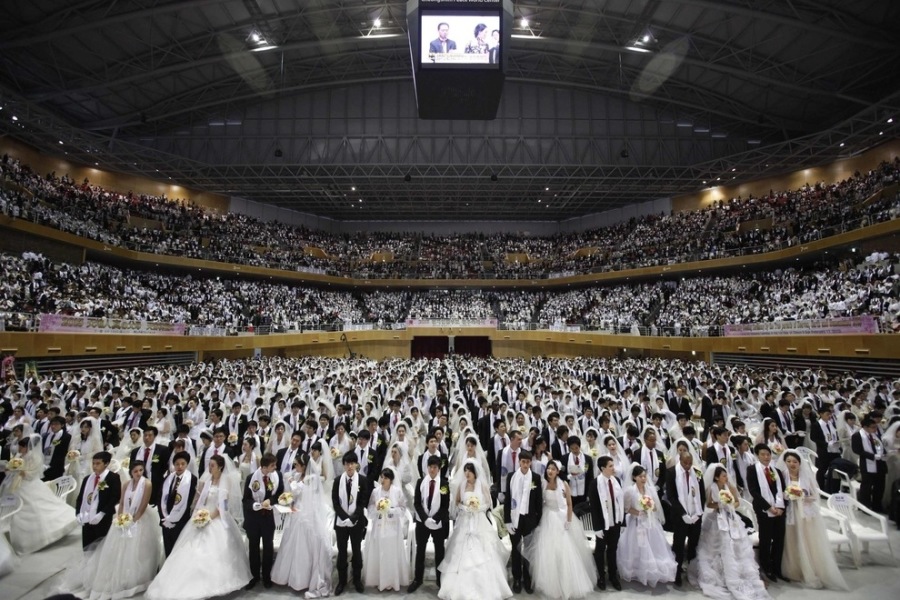
On another front is the Unification Church, founded by the late Sun Myung Moon (spawning the term “Moonies” for its followers), which was labelled a cult (above photo, Moonie wedding). And in the late 1960s, the Children of God was created in California (later renamed The Family International of The Family) by polygamist David Berg. (See first photo.)
Take a moment to read this excellent article by Joe Navarro from Psychology Today. He includes a long list of traits of what he calls a pathological cult leader. Note that he includes organizational aspects of cult leadership, not just societal. His final comments are:
“When the question is asked, “When do we know when a cult leader is bad, or evil, or toxic?” this is the list that I use to survey the cult leader for dangerous traits. Of course the only way to know anything for sure is to observe and validate, but these characteristics can go a long way to help with that. And as I have said, there are other things to look for and there may be other lists, but this is the one that I found most useful from studying these groups and talking to former members of cults.
When a cult or organizational leader has a preponderance of these traits then we can anticipate that at some point those who associate with him will likely suffer physically, emotionally, psychologically, or financially. If these traits sound familiar to leaders, groups, sects, or organizations known to you then expect those who associate with them to live in despair and to suffer even if they don’t know it, yet.”
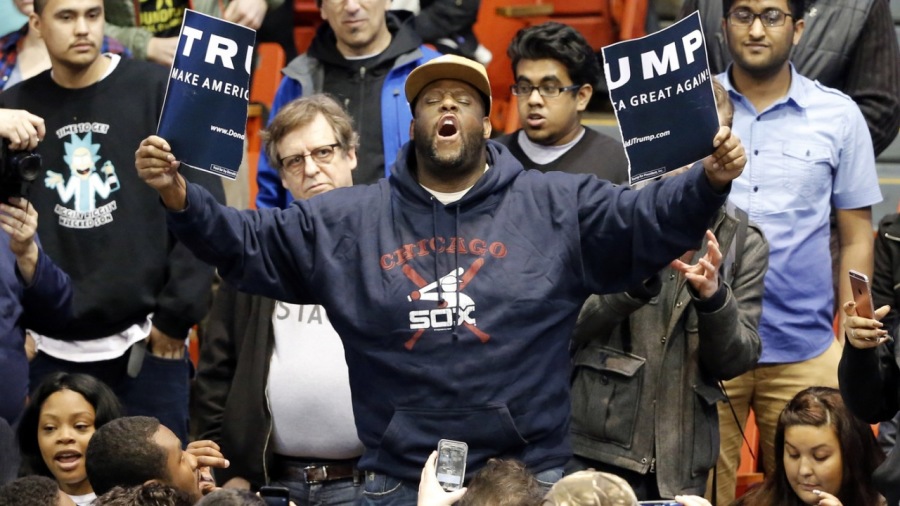
Is he a cult leader? Has he created a devoted cult that appears to see the world in black and white?
That’s left to the reader to interpret and to make his or her own conclusion; the experts won’t be of much help. The visceral emotional response to Trump’s presidency has pushed aside much of the intelligent debate on his policies and practices as president. Whether it’s the media, academics, economists, psychologists, geo-political analysts, or the lay-public, everyone now seems to hold a strong black or white opinion of Donald Trump. He’s either going to “make America great again” or destroy the country.
What’s been lost in the turmoil since the election is any sense of people—both pro and anti Trump— being open to outcome and not being attached to it. The Great Divide is in need of healing.
Supporters and detractors proceed at their own risk.
I have the right temperament. I have the right leadership. I’ve built an incredible company. I went to a great school. I came out – I built an incredible company. I wrote the number one selling business book of all time: ‘Trump: The Art of the Deal.’
—Donald J. Trump
____________________________________________________________________________________________
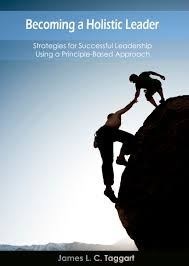
Visit Jim’s e-Books, Resources and Services pages.
Contact Jim for information on his Holistic Leadership Workshop
""""""
Articles from Jim Taggart
View blog
Teamwork is talked about widely in organizations, but often with little understanding of what it mea ...

Franklin Delano Roosevelt rates as being one of America’s greatest presidents, probably in the top t ...
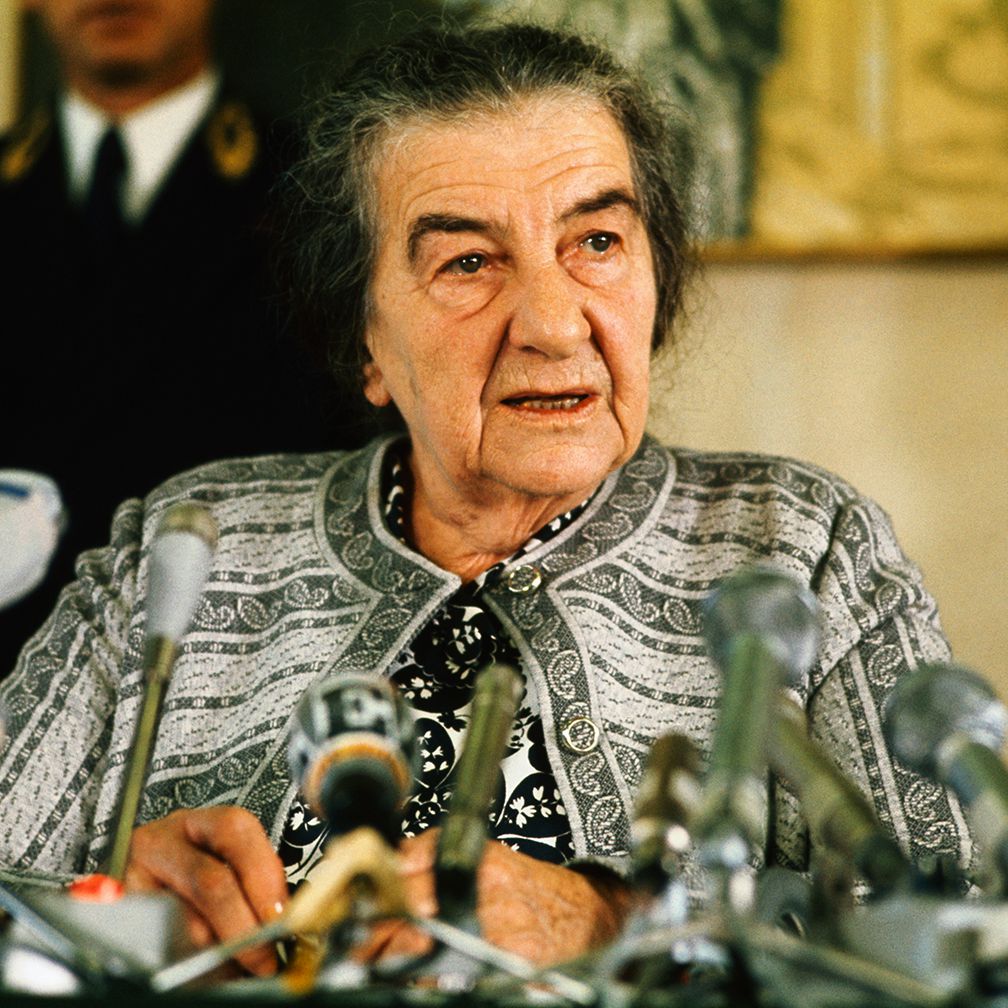
I am your servant. I do not come to you as a leader, as one above others. · When you read these word ...
Related professionals
You may be interested in these jobs
-
bookkeeper
Found in: Talent CA 2 C2 - 6 days ago
Viking Ventures Ltd. Berwick, CanadaEducation: Secondary (high) school graduation certificate · Experience: 1 year to less than 2 years · Tasks · Calculate and prepare cheques for payroll · Calculate fixed assets and depreciation · Keep financial records and establish, maintain and balance various accounts using ma ...
-
sales and marketing consultant
Found in: Talent CA 2 C2 - 2 days ago
Namaha Transport Services Inc Mississauga, CanadaEducation: · Expérience: · Education · Bachelor's degree · or equivalent experience · Work setting · Urban area · Rural area · Various locations · Tasks · Administer programs to promote industrial and commercial business investment in rural and urban areas · Respond to enquirie ...
-
housekeeping supervisor
Found in: Talent CA 2 C2 - 1 day ago
Drawbridge Residences Inc Sarnia, CanadaEducation: · Expérience: · Education · Secondary (high) school graduation certificate · Work setting · Hotel, motel, resort · Tasks · Hire and train or arrange for training of cleaning staff · Supervise and co-ordinate activities of workers · Inspect sites or facilities to ensu ...




Comments
Jim Taggart
7 years ago #2
Trump-style patriotism is reminiscent in some ways of the Rise of the Third Reich. In America's contemporary case, it means keeping the masses ignorant and the rich and powerful laughing all the way to the bank, while the president espouses nationalist rhetoric. Glad I live in the Great White North. Fortunately, Canadians don't have to make their country great again since it is already great.
Joyce 🐝 Bowen Brand Ambassador @ beBee
7 years ago #1